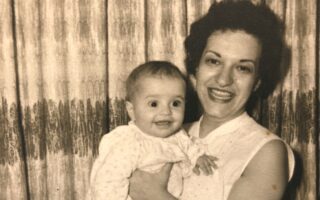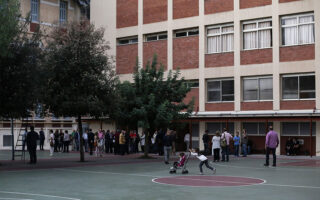A great step homewards

Sometimes, exerting power can break through the limits of political management, offering joy to those who wield it and to those whom it helps. As when a prime minister focuses on the pain of a small group of people and, with one push, propels a long-running struggle for justice towards resolution. This occurred in Athens a few days ago, when Kyriakos Mitsotakis expressed the will to help “Greece’s lost children” regain the citizenship that they were deprived of when they were given up for adoption abroad, some 50, 60 or 70 years ago. In a meeting at his office in Maximos Mansion last Tuesday, the prime minister told professors Gonda Van Steen and Mary Cardaras that he will push through legislation to resolve the issue.
For years, some 500 people who were born in Greece have been trying to regain their citizenship. But they have faced bureaucracy, indifference, and, at times, the opposition of public services. They are among 4,000 children who, between 1948 and 1975, were sent for adoption to the United States (mostly), but also to the Netherlands, Sweden and other countries. Most were given up by orphanages or by parents unable to care for them during those difficult years. The children were then forgotten. They grew up, matured, living far from their birthplace, far from Greek relatives and their culture. Some learned their history from their adoptive parents. Some returned to Greece and found mothers, siblings, uncles, aunts and cousins. Some never learned their story, or did not find a thread to follow. Others died before their nostos – their homecoming.
The story of the adoptions abroad became more widely known in the mid-1990s, when there was much publicity around revelations that some of the adopted children had been stolen from their mothers. But the wider dimension of the issue was revealed only in 2019, when Van Steen, who holds the Koraes Chair at King’s College London, published her astonishing and superbly sourced study of the issue. Her book “Adoption, Memory, and Cold War Greece: Kid pro Quo?” describes in great detail Greek society at the time the children were born, the difficulties faced by single mothers and poor families, and the ways in which governments, organizations and private individuals encouraged adoption by families abroad. Often, the necessary procedures were not followed. With Van Steen as the focal point, many of the “lost children” began to look into their stories. One of them was journalist and professor at the University of California, Mary Cardaras, now founder and director of the Demos Center of the American College of Greece. Cardaras’ mother had left her at the Athens Orphanage, and she was adopted by a family in America. With Van Steen and with other adopted children, Cardaras has been fighting for the right of those who were sent abroad to regain their Greek citizenship and to be given access to their case files.
By last year, only two adoptees had achieved their homecoming. The struggle was not easy. Although the General Secretariat for Citizenship and Greek consulates had begun to show a greater inclination towards helping, there are obstacles. Many adoptees do not have their birth certificates. But they do have the certificate of adoption and the Greek passport with which they traveled to their new life. They ask that these documents be deemed sufficient.
It is both just and necessary that people who were torn away from their homeland should feel that Greece, which could not embrace them then, can embrace them now. Ending a historical injustice bestows honor on those who contributed to the solution.





